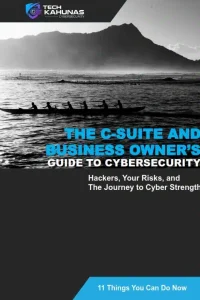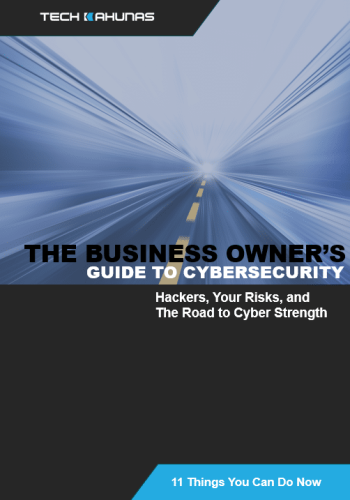You're facing a growing wave of cyber attacks on family offices, where sophisticated tactics like phishing and ransomware are rife. Hackers target financial gain and reputational harm, often exploiting vulnerabilities such as decentralized IT and insider threats. High-profile breaches have compromised sensitive financial data and eroded trust. To guard against these threats, employ multi-factor authentication, conduct regular cybersecurity training, segment your networks, and perform consistent audits. These measures can greatly enhance your security posture. Understanding these strategies and the emerging trends like AI-driven threats will be essential as you navigate the evolving cybersecurity landscape.
Key Takeaways
- Cyber attacks on family offices increasingly use sophisticated tactics like social engineering and advanced persistent threats.
- Phishing and ransomware are common methods attackers use to infiltrate family office systems.
- Multi-factor authentication and regular cybersecurity training are crucial to prevent unauthorized access and data breaches.
- Insider threats and decentralized IT infrastructure are significant vulnerabilities for family offices.
- Investing in advanced security solutions and fostering a cybersecurity awareness culture are essential preventive measures.
Notable Cyber Attack Incidents
Over recent years, the increasing sophistication of cyber attacks has targeted family offices with alarming precision. You need to understand how these incidents unfold to protect sensitive financial data.
Incident analysis reveals that attackers meticulously plan their intrusions, often using social engineering and advanced persistent threats to infiltrate systems. They exploit vulnerabilities not just in technology, but in human behavior, making your awareness critical.
Examining notable incidents, you'll find that attack motivations typically revolve around financial gain, data theft, or reputational damage. Cybercriminals are aware that family offices manage vast portfolios and sensitive personal information, making them lucrative targets.
In one high-profile case, hackers breached a family office's email system, gaining access to confidential communications and financial data. The attackers then demanded a ransom, threatening to leak sensitive information unless paid.
Analyzing these incidents, you'll notice patterns in how attackers choose their targets and execute their plans. Understanding these motivations and patterns helps in developing robust defenses.
It's crucial to stay informed about the latest threats and continuously assess your security posture. By doing so, you can minimize risks and protect your family office from potential breaches.
Common Tactics Used by Hackers
You need to be aware that hackers often employ phishing and social engineering tactics to manipulate individuals into revealing sensitive information.
They also use ransomware and malware to infiltrate systems, encrypt data, and demand payment for its release.
Phishing and Social Engineering
Phishing and social engineering attacks remain among the most prevalent and effective tactics used by cybercriminals targeting family offices. These schemes often involve deceptive emails or messages, known as phishing scams, that appear to come from trusted sources. Hackers craft these communications to manipulate you into revealing sensitive information, such as passwords or financial data.
In many cases, they create a sense of urgency, prompting you to act quickly without verifying the message's authenticity.
Social engineering takes these scams a step further by exploiting human psychology. Cybercriminals might impersonate colleagues or service providers to gain your trust. They often conduct thorough research on their targets, using details from social media or public records to make their approach more convincing.
By understanding your organization's structure and communication patterns, attackers can tailor their tactics to maximize effectiveness.
To protect your family office, it's essential to foster a culture of skepticism. Encourage everyone to question unexpected requests for sensitive information or urgent action.
Implementing multi-factor authentication and conducting regular security training can also help mitigate these risks. By staying vigilant and informed, you can reduce the likelihood of falling victim to these sophisticated cyber threats.
Ransomware and Malware Threats
How do ransomware and malware threats infiltrate family offices with such alarming frequency? Hackers often exploit vulnerabilities in outdated software, unpatched systems, and weak network security to gain unauthorized access.
Once inside, they deploy malicious code that encrypts critical files, effectively locking you out of your own data. These attacks can result in significant data breaches, exposing sensitive financial information and personal details.
A common tactic involves phishing emails, which trick you into clicking malicious links or downloading infected attachments. Ransomware can also spread through compromised websites or infected USB drives.
Attackers adapt quickly, using sophisticated malware that evades traditional antivirus programs. This requires a proactive approach to threat mitigation.
To protect your family office, implement robust cybersecurity measures. Regularly update software and operating systems to patch vulnerabilities.
Employ advanced firewalls and intrusion detection systems to monitor network traffic. Conduct regular data backups and store them offline to guarantee data recovery without paying a ransom.
Educate staff on recognizing phishing attempts and maintaining strong password practices. By understanding these tactics and enhancing your defenses, you reduce the risk of falling victim to ransomware and malware, safeguarding your critical assets.
Vulnerabilities in Family Offices
Family offices, which manage the private wealth and affairs of affluent families, often face unique cybersecurity vulnerabilities due to their personalized operations and lack of robust security frameworks.
One of the significant risks you need to be aware of is insider threats. These threats can originate from employees, contractors, or trusted partners who've legitimate access to sensitive information. Their access, combined with insufficient monitoring and controls, can lead to unauthorized data exposure or manipulation, compromising data privacy.
Another vulnerability stems from an often decentralized IT infrastructure. Family offices may rely on multiple, loosely connected systems managed by small IT teams. This setup can result in inconsistent security measures across platforms, leaving gaps for cybercriminals to exploit.
Additionally, the emphasis on personalized service means that family offices might prioritize convenience over security, increasing the likelihood of oversight in cybersecurity best practices.
Moreover, the integration of personal and business data in family offices can pose a significant risk. Without rigorous data privacy measures, sensitive personal information can be inadvertently exposed, making you a target for cyber attacks.
Implementing thorough cybersecurity policies and regular employee training can mitigate these vulnerabilities effectively.
Financial and Reputational Impact
Cybersecurity breaches in family offices can lead to significant financial and reputational damage. When attackers infiltrate your systems, they can access sensitive financial data, leading to substantial financial consequences. You might face direct losses, such as unauthorized fund transfers or the cost of ransom payments.
Indirectly, these breaches can result in increased insurance premiums and legal fees as you navigate the aftermath. The financial consequences don't stop there; you may also need to invest heavily in remedial measures, including enhanced security infrastructure and additional staff training.
Reputational damage can be equally detrimental. Trust is a cornerstone of family offices, and breaches can severely undermine client confidence. If clients perceive your security measures as inadequate, they might reconsider their association with your firm.
This loss of trust can lead to client attrition, impacting your business's bottom line. Additionally, reputational damage can extend to potential clients, tarnishing your brand's image in the industry. Negative publicity surrounding a breach could also attract regulatory scrutiny, further complicating your recovery efforts.
As a result, understanding these risks and their potential impact is vital for maintaining both your financial health and reputation.
Strengthening Cybersecurity Measures
To effectively bolster your cybersecurity defenses, start by conducting a thorough risk assessment to identify potential vulnerabilities within your network. A detailed risk assessment will help you pinpoint weak access points and areas needing immediate attention.
Once identified, implementing robust cybersecurity measures becomes essential. Here's how you can strengthen your defenses:
- Implement Multi-factor Authentication (MFA): Requiring multiple forms of verification before granting access greatly reduces unauthorized intrusions. Verify all devices, especially those handling sensitive data, are protected with MFA.
- Regular Cybersecurity Training: Equip your team with necessary skills through regular training sessions. Employees should recognize phishing attempts, understand secure communication protocols, and know how to respond to potential threats.
- Network Segmentation: Divide your network into smaller, manageable segments. This limits access to sensitive areas, making sure that even if one segment is compromised, the attacker can't easily access the entire network.
Conduct regular audits and update your cybersecurity protocols in response to emerging threats.
By diligently applying these measures, you'll create a more resilient defense system, safeguarding your family office from potential cyber threats.
Future Threats and Trends
As technology rapidly evolves, cyber threats targeting family offices continue to advance in complexity and sophistication. You must stay ahead by understanding how emerging technologies like artificial intelligence and quantum computing can be both a boon and a bane.
Cybercriminals increasingly harness AI to automate and scale their attacks, creating more convincing phishing schemes and identifying vulnerabilities faster than ever. Quantum computing, while still in its nascent stages, poses future risks to encryption standards, potentially rendering traditional security measures obsolete.
In this dynamic landscape, regulatory challenges will also play an essential role. As family offices operate across multiple jurisdictions, you'll face the intimidating task of maneuvering an ever-changing tapestry of data protection laws.
Compliance with regulations such as GDPR or CCPA requires constant vigilance and adaptation, which can strain resources.
Moreover, the rise of the Internet of Things (IoT) introduces additional vulnerabilities as more devices connect to networks. Securing these endpoints is paramount, as each one can serve as a potential entry point for attackers.
To mitigate these threats, prioritize proactive measures: invest in cutting-edge security solutions, foster a culture of cybersecurity awareness, and maintain a robust incident response plan.
Frequently Asked Questions
How Do Family Offices Typically Respond to a Cyber Attack?
You initiate an incident response, conducting a thorough threat assessment. Implement data encryption and enhance cybersecurity training. Focus on risk management to prevent future breaches. Prioritize incident recovery, ensuring systems are secure and operational with minimal disruption.
What Legal Obligations Do Family Offices Have Following a Data Breach?
Imagine a thunderstorm of liability; you must promptly issue a data breach notification. Legal obligations demand transparency to mitigate legal liability. Failure to comply with regulatory requirements might lead to fines, reputational damage, or lawsuits. Stay vigilant.
Are There Specific Insurance Policies for Cyber Attacks on Family Offices?
You're considering cyber insurance for family offices, focusing on risk management. Specific policies exist, offering tailored coverage to safeguard against cyber threats, data breaches, and financial loss, enhancing your protection strategy with thorough analytics and technical assessments.
How Can Family Offices Maintain Client Trust After a Cyber Incident?
After a data breach, 60% of businesses face significant trust issues. You should prioritize client communication and implement robust reputation management strategies to reassure clients, demonstrating transparency and proactive measures to prevent future incidents.
What Role Do Third-Party Vendors Play in Family Office Cybersecurity?
You must assess vendor risk by conducting thorough cybersecurity assessments. Third-party vendors play an essential role in your family office's security posture. By evaluating their protocols, you guarantee robust defenses and mitigate potential vulnerabilities introduced by external partners.
Conclusion
You've explored the critical importance of cybersecurity in family offices. Consider a case where a family's wealth was siphoned off due to a phishing attack exploiting outdated software. Such incidents underline the need for robust defenses. By regularly updating systems, educating staff, and implementing multi-layered security protocols, you can mitigate these risks. As cyber threats evolve, staying vigilant and proactive is essential to protect both financial assets and reputation in this increasingly digital world.



 Get your CPA firm aquainted with new FTC rules.
Get your CPA firm aquainted with new FTC rules. 




